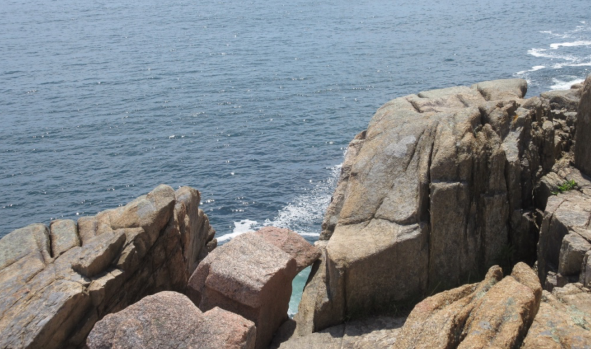Climate change is predicted to have significant impacts on New England’s biodiversity. If emissions continue unabated, mean global temperature is predicted to rise by 3-5 ºC by the end of the century, and well beyond the range of natural variability. Changes are already evident in Acadia National Park (ACAD). Between 1895 and 2010, annual precipitation significantly increased in ACAD by 16% and temperatures by 0.8 ºC; the rate of temperature increase in the park is expected to be 3-6 times greater by 2100, particularly in inland portions. Identifying climate change refugia for representative species can provide valuable information for adapting to climate change. Climate change refugia are areas relatively buffered from contemporary climate change over time that enable persistence of valued physical, ecological, and socio-cultural resources. Many of the physical characteristics and microclimatic gradients that can create climate change refugia – such as high spatial heterogeneity in topography and habitat, proximity to large water bodies, and regular inland diffusion of coastal fog – are present in ACAD.
This project leveraged fine-scale climate and land change mapping products developed through the North Atlantic Landscape Conservation Cooperative’s Designing Sustainable Landscapes (DSL) project to identify and map climate change refugia for a suite of representative species found in ACAD and the surrounding region. The data products hosted here are designed to help inform management and conservation action.
This project is supported primarily by the Second Century Stewardship, a collaboration between Schoodic Institute at Acadia National Park, The National Park Service, the National Park Foundation, The American Association for the Advancement of Science, and the David Shaw Family Foundation. Additional support was provided by Dr. Toni Lyn Morelli at the Northeast Climate Adaptation Science Center (NECASC).
We developed climate change refugia maps for the focal species identified by stakeholders and partners using three different modeling frameworks and data streams. The data links below archive results for individual species, each under the specific data stream/modeling framework used to develop climate change refugia maps.
Datasets in collection are associated with the draft paper:
Incorporating Climate Change Refugia Into Climate Adaptation in the Acadia National Park RegionDOI for CCRANPR Dataset collection: https://doi.org/10.35482/ccranp.rep.09.2019
Browse the Climate Change Refugia in the Acadia National Park Region Collections:
Designing Sustainable Landscapes Refugia Products


